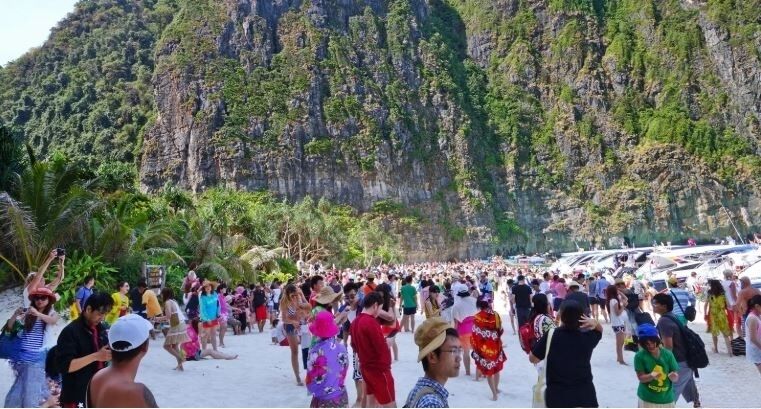Unregistered hotels could boost tourism revenue to 3.5 trillion baht

Unregistered hotel operators entering the registration system could significantly increase hidden tourism revenues, potentially reaching 3.5 trillion baht if successful, according to the Tourism and Sports Ministry.
Tourism and Sports Minister Sorawong Thienthong stated that the annual revenue reported by the ministry is lower than the actual tourism figures due to the extensive informal economy, which includes illegal accommodations and home-sharing platforms like Airbnb.
The new Hotel Act, designed for small and medium-sized operators, is expected to be presented in Parliament by April, aiming to bridge this gap.
As the government initiated the Amazing Thailand Grand and Sports Year 2025 campaign, targeting 3.5 trillion baht in revenue, Sorawong noted that recognising revenue from these informal businesses could help surpass last year’s 2.75 trillion baht earnings.
Ratchaporn Poolsawadee, Vice-President of the Tourism Council of Thailand, emphasised the importance of registering more accommodations for the tourism industry. He highlighted that the government could collect taxes to ensure fair competition, while newly registered operators would benefit from stimulus schemes, trade shows, and financial loans to maintain competitiveness.

Ratchaporn revealed that over 85% of 100,000 accommodations nationwide remain unregistered. These operators generate hundreds of thousands to millions of baht monthly, indicating a potential revenue increase if they register.
He suggested that the government should also attract businesses like Airbnb and ride-hailing services while eliminating illegal foreign operators and nominee businesses that divert tourism income abroad.
Naree Suneta, President of the Hostel Thailand Association, mentioned that some small operators hesitate to register due to concerns over high rates. She proposed that the government inform them of benefits like eligibility for special rate loans.
In Bangkok’s Phra Nakhon district, only 20 out of 140 accommodations have licences. Chinnawat Udomniyom, president of Phuket Boutique Accommodation Consortium, noted that while hotels in Phuket benefit from higher room rates due to their popularity among foreign tourists, few hold licences.

Chinnawat stated that the Tourism Authority of Thailand’s Phuket office aims for a new high of 500 billion baht in revenue this year, with attracting more operators into the system as a key driver.
The association supports the new Hotel Act for small and medium hotels, as the ministerial draft easing regulations is set to expire in August, with many applications unlikely to meet the deadline.
He also suggested that the government address nominees and illegal businesses, such as Chinese-owned tour companies, accommodations, and foreign tour guides, which contribute to lost revenue for Phuket’s thriving tourism industry, reported Bangkok Post.
Latest Thailand News
Follow The Thaiger on Google News:


























